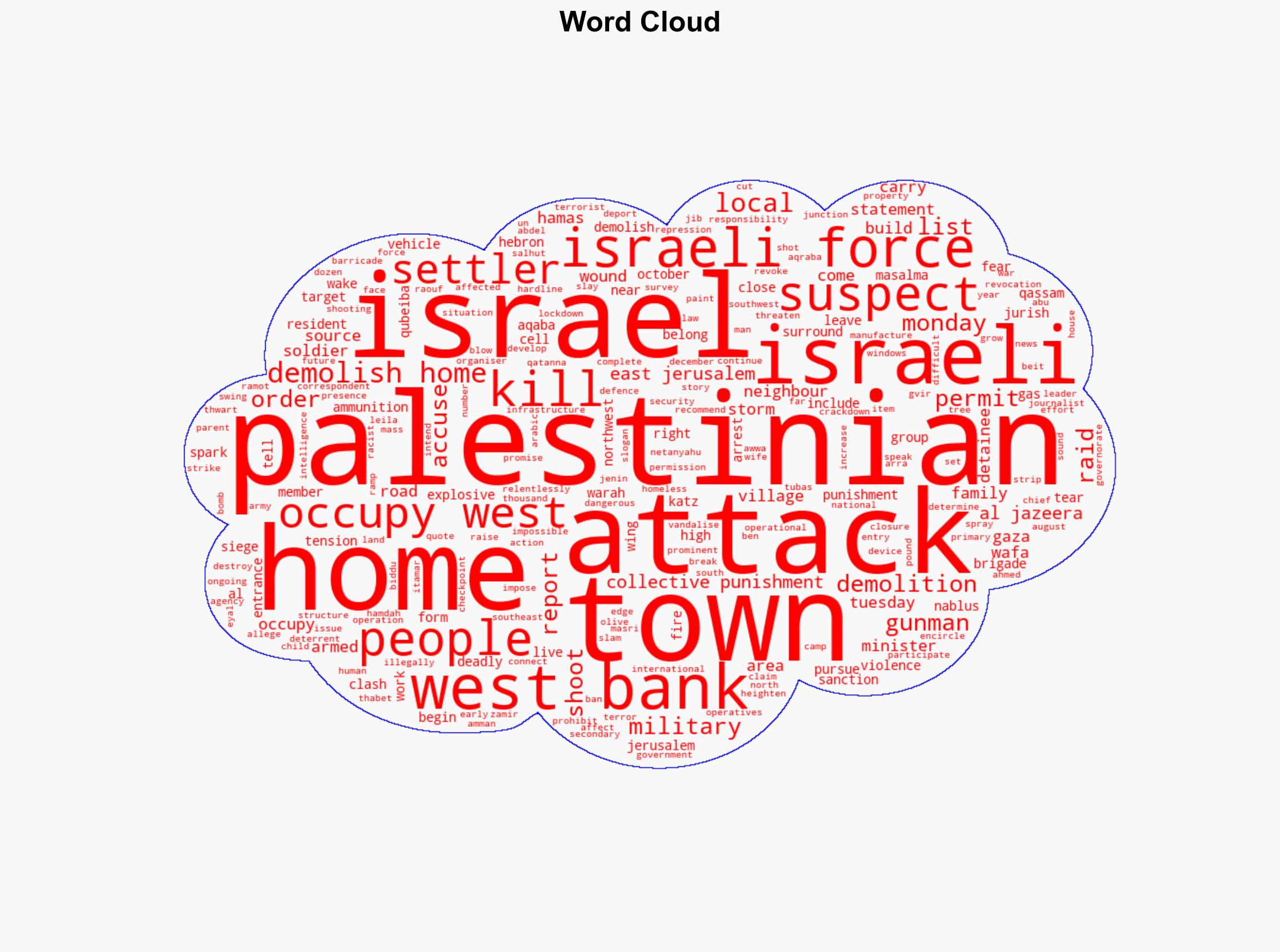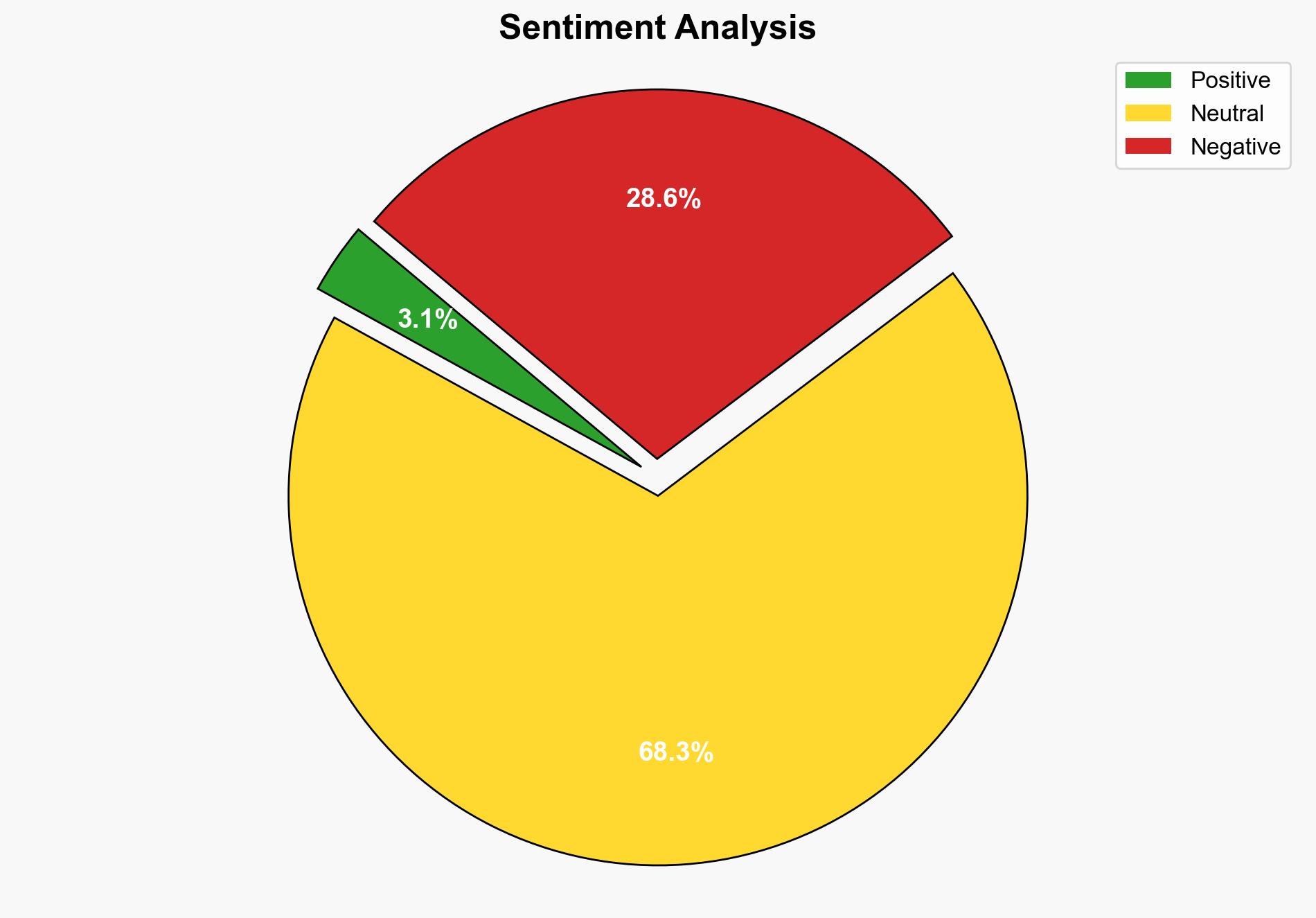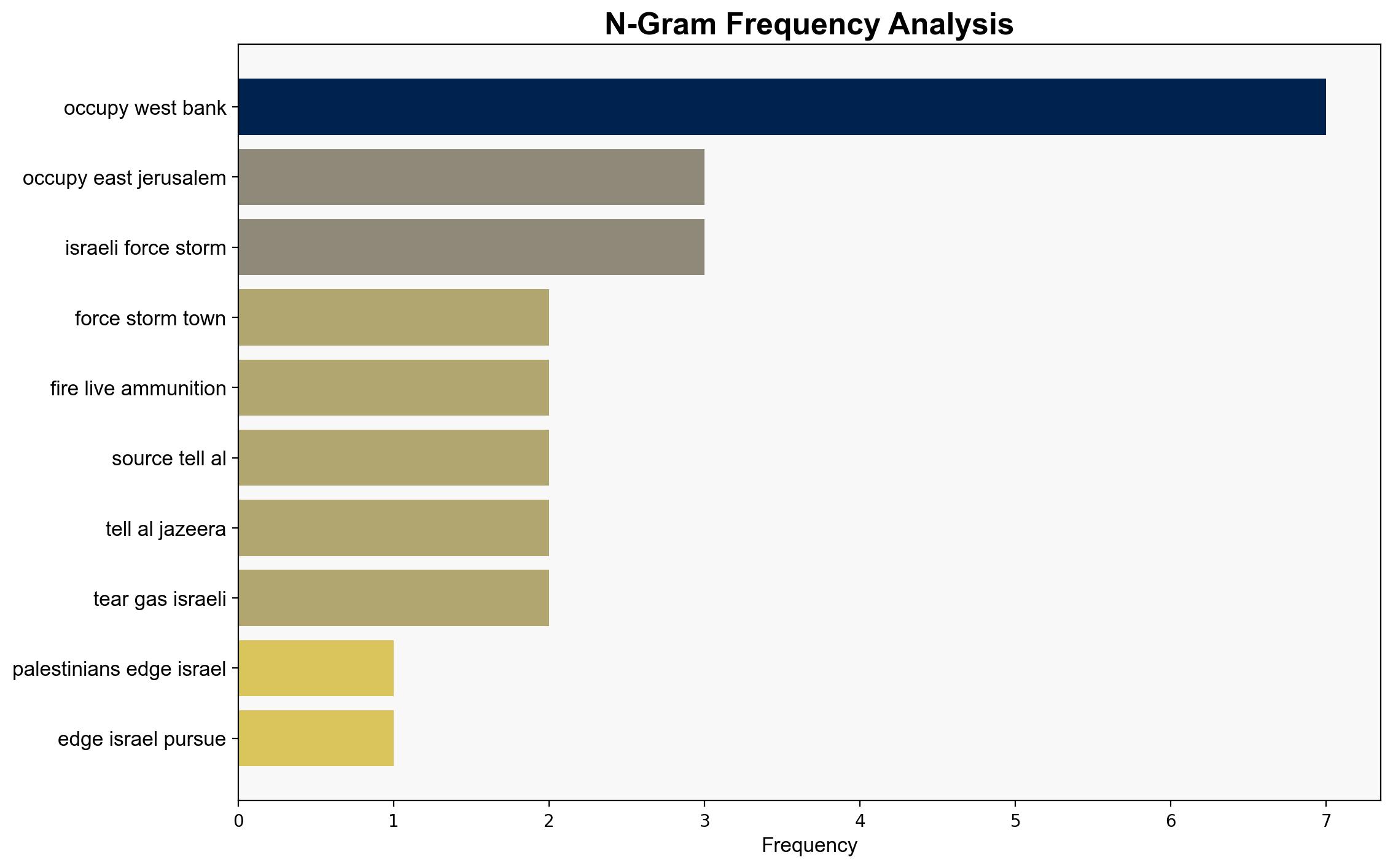Palestinians on edge as Israel ramps up raids in wake of Jerusalem attack – Al Jazeera English
Published on: 2025-09-09
Intelligence Report: Palestinians on edge as Israel ramps up raids in wake of Jerusalem attack – Al Jazeera English
1. BLUF (Bottom Line Up Front)
The situation in the occupied territories is escalating, with Israel intensifying military actions following a deadly attack in East Jerusalem. The most supported hypothesis is that Israel’s actions are primarily aimed at deterrence but risk exacerbating tensions and leading to further violence. Confidence level: Moderate. Recommended action: Engage in diplomatic efforts to de-escalate tensions and address underlying grievances to prevent further violence.
2. Competing Hypotheses
Hypothesis 1: Israel’s intensified military actions are primarily a deterrent strategy aimed at preventing future attacks by demonstrating a strong response to the recent violence in East Jerusalem.
Hypothesis 2: The actions are part of a broader strategy to exert control over the occupied territories, using the recent attack as a pretext to implement long-term political objectives, including territorial consolidation.
Using ACH 2.0, Hypothesis 1 is better supported due to the immediate nature of the military response and the stated intentions of Israeli officials to deter future attacks. Hypothesis 2 lacks direct evidence linking the recent actions to broader strategic objectives beyond deterrence.
3. Key Assumptions and Red Flags
Assumptions: Both hypotheses assume that Israel’s actions are rational responses to security threats. Hypothesis 1 assumes that deterrence is the primary motive, while Hypothesis 2 assumes a broader political strategy.
Red Flags: The potential for cognitive bias exists in interpreting Israel’s actions solely as deterrence without considering alternative motives. Inconsistent data includes varying reports on the proportionality and legality of the actions under international law.
4. Implications and Strategic Risks
The current escalation could lead to a cycle of retaliation between Israeli forces and Palestinian groups, increasing regional instability. Economic impacts may arise from disruptions in the occupied territories. Geopolitically, heightened tensions could strain Israel’s relations with neighboring countries and international bodies. Psychologically, the actions may fuel further radicalization and recruitment by extremist groups.
5. Recommendations and Outlook
- Engage in diplomatic efforts to de-escalate tensions and address underlying grievances.
- Monitor for signs of further escalation and prepare contingency plans for potential humanitarian crises.
- Scenario-based projections:
- Best Case: Successful diplomatic intervention leads to a reduction in violence and a return to negotiations.
- Worst Case: Continued escalation results in widespread violence and regional instability.
- Most Likely: Ongoing tensions with intermittent violence and limited international intervention.
6. Key Individuals and Entities
– Benjamin Netanyahu
– Itamar Ben Gvir
– Yoav Katz
– Hamas Qassam Brigade
7. Thematic Tags
national security threats, regional focus, counter-terrorism, geopolitical tensions




